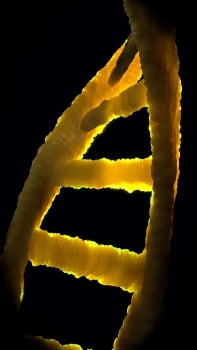Unique Funeral Ideas: DNA Storage
Many of the activities undertaken during funeral planning are designed to preserve the memory of a loved one. From embalming a body for a final viewing and grave memorials to cremation jewelry, today’s funeral options fill a need for mourning families who to want to hold on to the deceased well beyond the grave.
Thanks to advances in laboratory technology and the accessibility of that technology to consumers, there’s a new option on the market: DNA storage. Like cord blood storage for infants, a sample is taken from the body of a loved one and processed for long-term storage. Unlike cord blood, however, you get to keep this DNA in your own home and for use however you would like.
How Does DNA Storage Work?
Because it is still such a new idea, DNA storage is not something you can find everywhere. Providers like DNA Capsule work with funeral homes to provide this service, though you can also store DNA long before death occurs. (In fact, if you wait until after death, you only have up to 12 hours to have the sample collected, with additional flexibility for bodies under refrigeration.)
When you opt for DNA storage, blood is collected in a lab, hospital, or funeral home setting and processed at the DNA facility. This processing includes dehydrating the blood, mixing it with a chemical compound that stabilizes the DNA at room temperature, and sealing it against moisture in the air and regular degeneration. Because there is no need for refrigeration, the sample can be stored (or even displayed) at home.
Most samples will last in good condition for up to 100 years, and can be rehydrated in order for future testing.
Why DNA Storage?
The reasons for storing DNA vary. Some people simply want a reminder of their loved ones (in much the same way you would hold onto cremated remains), and having a DNA sample provides a way to maintain ties with those who have gone before us.
DNA can also be useful for future genetic testing. DNA contains much information about genetic diseases and inherited disorders, and families may need to access important information about the deceased’s health. Exhuming a body for this type of thing is a costly endeavor and not guaranteed, and cremation negates any blood results.
Because only about 1,000 disorders are currently testable in DNA, and because scientists aren’t entirely sure what else is possible with this information, the future holds the possibility for much more.
Making DNA and Funeral Plans
If you’d like more information on DNA storage, you can visit DNA Capsule online or talk to your funeral home provider. Like most parts of funeral planning, this type of service must be done soon after death occurs, so the sooner you make advance arrangements, the better for everyone.




